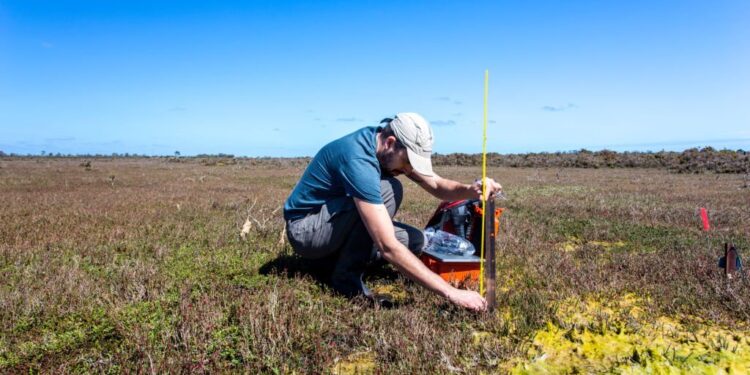Geotechnical monitoring and instrumentation are crucial for successfully completing a construction project. Using sensors and other monitoring instruments helps engineers gather critical data about the performance of soil and rock formations. However, the usefulness of these sensors and instruments can be limited without the right tools for collecting and storing data. This is where a data logger comes in. This article will explore what data recorders are, the types available, their applications, and how they work.
What is a Data Recorder for Geotechnical Monitoring and Instrumentation?
A data recorder, also known as a data logger, is an electronic device that records and stores data from various sensors and monitoring instruments. It can simultaneously record data from multiple sensors, including strain gauges, displacement sensors, load cells, and other instruments used in geotechnical monitoring and instrumentation. The data recorder captures data in real-time or at set intervals and stores it in memory. The data can be retrieved and analysed later using specialised software.
Types of Data Recorder for Geotechnical Monitoring and Instrumentation
There are various types of data recorders available in the market, each with its unique features and capabilities. Some of the common types include:
Standalone Data Recorders
Standalone data recorders are the most basic type of data recorder. They are compact, portable, and easy to use. They come with internal memory, which allows them to store data even when not connected to a computer. They can be configured to collect data at set intervals or respond to trigger events. They are suitable for short-term monitoring projects.
Networked Data Recorders
Networked data recorders are designed for long-term monitoring projects. They are more advanced than standalone data recorders and can connect to the internet or a local network. They can also communicate wirelessly with devices like smartphones or tablets. They can store large amounts of data, which can be accessed remotely.
Web-Based Data Recorders
Web-based data recorders are similar to networked data recorders, but they have a web interface that allows users to access the data remotely. They can also send real-time alerts and notifications, making them ideal for critical monitoring applications. Web-based data recorders are typically used in large-scale monitoring projects that require real-time data access.
Multiplexer Data Recorders
Multiplexer data recorders are designed for applications that require simultaneously monitoring multiple sensors. They can handle inputs from multiple sensors and independently record data from each sensor. These are ideal for applications where space is limited and multiple sensors must be monitored.
Applications of Data Recorder for Geotechnical Monitoring and Instrumentation
Data recorders are essential tools in geotechnical monitoring and instrumentation. They can be used in various applications, including:
Structural Monitoring
Data recorders can monitor the structural integrity of buildings, bridges, and other structures. They can measure structural components’ deformation, strain, and stress and alert engineers to potential problems before they become serious.
Slope Stability Monitoring
Data recorders can be used to monitor the stability of slopes and embankments. They can detect changes in slope movement, pore pressure, and groundwater levels, which can help engineers to predict and prevent slope failures.
Earthquake Monitoring
Data recorders can be used to monitor seismic activity and detect earthquakes. They can measure ground motion, acceleration, and velocity, providing critical data for earthquake research and seismic hazard assessment.
Foundation Monitoring
Data recorders can be used to monitor the performance of foundation systems. They can measure settlement, heave, and
other parameters that can affect the stability and safety of buildings and other structures.
Environmental Monitoring
Data recorders can monitor environmental conditions such as temperature, humidity, and air quality. They can also monitor water quality, soil moisture, and other environmental parameters. This information can be used to assess the impact of construction projects on the environment and to ensure compliance with environmental regulations.
How Data Recorders Work
Data recorders connect to sensors and other monitoring instruments and collect data. The data is typically stored in internal memory, but in some cases, it may be transmitted wirelessly to a remote server or computer. The data can be retrieved and analysed using specialised software, which can provide insights into the performance of soil and rock formations and other geotechnical parameters.
Conclusion
Data recorders are essential tools in geotechnical monitoring and instrumentation. They provide engineers with critical data on the performance of soil and rock formations, structural components, and other parameters. With the right data recorder, engineers can monitor projects in real-time, predict and prevent potential problems, and ensure the safety and stability of buildings, bridges, and other structures. The choice of data recorder will depend on the project’s specific needs, including the type of sensors and monitoring instruments used, the duration of the project, and the required level of data access and analysis. Engineers can ensure they have the tools they need to succeed by choosing the right data recorder for their project.



